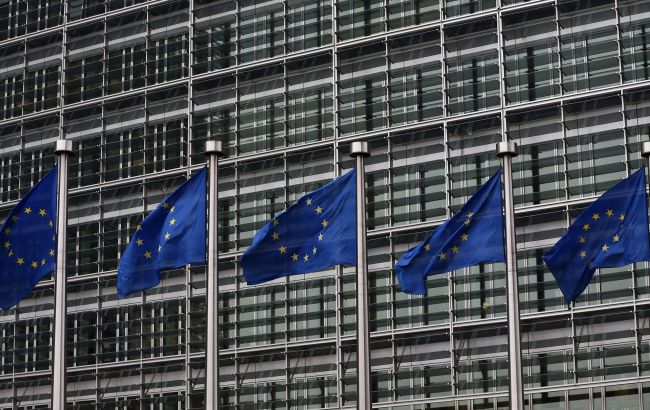Money, weapons and more: EU preparing new Russia sanctions as Ukraine war anniversary approaches
 Photo: The EU may reform the €5 billion military aid fund for Ukraine (Getty Images)
Photo: The EU may reform the €5 billion military aid fund for Ukraine (Getty Images)
The European Union is preparing new sanctions against the Russian Federation on the eve of the second anniversary of the full-scale invasion of Ukraine. The sanctions aim to restore the reduction in Western assistance to Ukraine, writes the Financial Times.
Support package from West
The sanctions will include new restrictions against legal and natural persons associated with the full-scale invasion of Ukraine in 2022. As part of the aid package, Kyiv is expected to receive €50 billion over the next four years. Sources claim that a portion of the funds will be disbursed immediately after the agreement is concluded.
As part of the overall support package, €5 billion in military aid will be allocated annually to Ukraine, and profits derived from frozen Russian assets will be transferred to Ukraine.
"It’s money, weapons and sanctions at a time when we recognize (the Ukrainians - ed.) need encouragement. But two years in, there are limits to what we can do,” said one EU diplomat involved in negotiations over the over package," stated an EU diplomat.
New sanctions
The sanctions will focus on adding more individuals and entities to the list of asset freezes and entry bans. However, they are unlikely to include a ban on the import of Russian aluminum, despite demands from Poland and the Baltic countries.
"Other elements could also be watered down to secure support, as previous attempts by some member states to target Russia’s nuclear fuel and liquefied natural gas exports to the EU have failed because of a lack of consensus," explains the Financial Times.
50 billion Euros
Financial aid was proposed last year as part of the EU budget update, which still needs to be signed by the leaders of the member countries at the meeting on February 1. Hungarian Prime Minister Viktor Orban blocked the deal in December; however, the European Commission is willing to make concessions to win him over, including allowing him to review the assistance in the future.
Meanwhile, EU diplomats are confident that the Hungarian leader will eventually yield, as he has done in previous situations related to assistance to Ukraine.
"If Orbán blows up the (EU budget top-up), it’s like a political exit from the union," said a high-ranking EU diplomat.
Another additional element is the possibility of providing Ukraine with part of the aid; however, the exact amount is still under discussion.
Russian frozen assets
"The commission’s proposal on Russian state assets dates from December, but stops short of actually confiscating those profits and transferring them to Ukraine," states the article.
According to a high-ranking EU diplomat who participated in the negotiations, the proposal on frozen assets will "show progress without actually getting the money any closer to Kyiv."
"We are kicking the can down the road," says a senior EU diplomat involved in the negotiations.
According to EU representatives, the seizure of Russia's assets, most of which are in Europe, is unlikely to receive support from Italy, France, and Germany.
Reforming the European Peace Facility
Currently, negotiations are focused on "gradually phasing out" compensation to countries for the weapons they sent to Ukraine. In particular, they plan to replace them with payments for joint production.
"Countries with large arms industries, such as Germany, want that phase out to happen faster than those without," the Financial Times explains.

